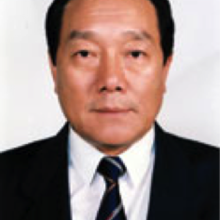
M.S., Plant Pathology, 1966
Sun Ming Hsien, who was born in 1937 in Taiwan, received a bachelor’s degree in agriculture from National Taiwan University in 1960, a master's degree in plant pathology from the University of Minnesota in 1966, and doctoral degree in plant pathology from Purdue University in 1971.
He was dedicated to crop improvement in Taiwan, working as commissioner for Agriculture and Forestry in Taiwan and later chairman of the Taiwan Council of Agriculture. Sun is considered one of Taiwan's most significant agricultural leaders and worked as the executive director of Taiwan 21st Century Foundation and Chairman of the Board of Directors of the Asian Vegetable Research and Development Center.
When Sun received the Distinguished Leadership Award for Internationals from the University of Minnesota in 2005, the selection committee cited his visionary leadership in "a long and distinguished career in research, administration, non-profit governance, national government, and international diplomacy."
In 2001, Sun published his autobiography “Big Agriculture – My Life Journey in Agriculture” to summarize the history, challenges, and solutions to Taiwan’s agriculture industry. He wrote, “I have a dream. I hope I can live until 100 years old, not for personal well-being but for my passion of working on agricultural development. With more time, I could work towards the significant accomplishment of Dr. Norman Borlaug (University of Minnesota alumnus and Nobel Prize Winner).”
Photo source: Global Programs and Strategy Alliance
孙明贤博士1937年出生于台湾,1960年获得国立台湾大学植物病虫害学士学位,1966年获得明尼苏达大学植物病理学硕士学位,1971年获得美国普渡大学植物病理学博士学位。
学成归国后孙博士致力于台湾农业发展,先后担任台湾农林厅厅长和行政院农业委员会主任委员等,被誉为台湾著名的蔬菜作物专家。目前孙明贤出任台湾财团法人二十一世纪基金会执行长、亚洲蔬菜-世界 蔬菜中心理事长。明尼苏达大学2005年授予孙明贤博士国际杰出领导奖章时,委员会高度赞扬他 “常年在学术研究、学生录取、行非盈利性管理和和国际外交方面做出突出贡献。”
2011年,孙明贤出版了自传《大农业―孙明贤的农业人生》,以一位“农业老兵”的身份,讲述了台湾农业发展历史、当前困境以及应对之道。此书的开篇是这样一段话:“我有一个梦。我祈愿,我可以活到一百岁。奢求长寿,目的不在为个人添福寿,求的是可以深耕自己热爱的农业生涯,当一个小农经济转型的推手… 在时间的追逐下,我可以更靠近Borlaug博士的光环,分享他卓越成就的一丝牙慧。”
